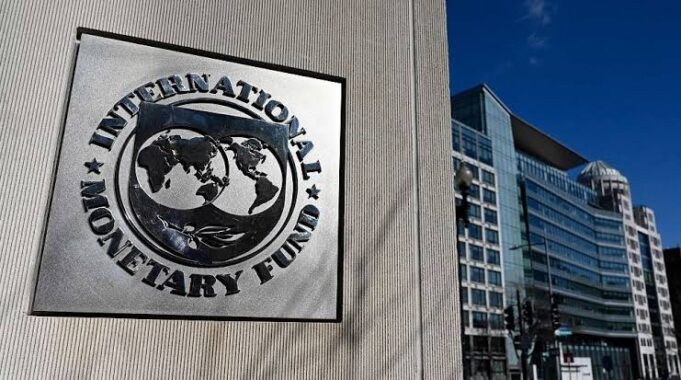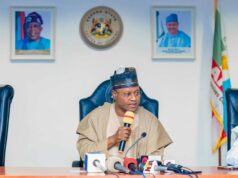The International Monetary Fund (IMF) has projected a further drop in inflation rate in the year 2024.
IMF said inflation is easing faster than expected but has not been fully defeated.
The Managing Director of IMF, Kristalina Georgieva, said this in a statement issued by the Fund on Thursday, April 11.
Speaking at the 2024 China Development Forum (CDF) in Beijing, Georgieva, urged central banks to carefully calibrate their decisions on cutting interest rates to incoming data.
Georgieva said headline inflation for advanced economies was 2.3 per cent in the final quarter of 2023, down from 9.5 per cent just 18 months ago, noting that the downward trend would continue in 2024.
According to her, this will create the conditions for central banks in major advanced economies to begin cutting rates in the second half of the year.
She, however, said the pace and timing would vary.
Nigeria’s inflation rate hits 31.70%
“On this final stretch, it is doubly important that central banks uphold their independence,” Georgieva said.
The IMF MD further urged policymakers to resist calls for early rate cuts when necessary, adding: “Premature easing could see new inflation surprises that may even necessitate a further bout of monetary tightening.
“On the other side, delaying too long could pour cold water on economic activity.”
Georgieva said next week’s World Economic Outlook would show that global growth is marginally stronger given robust activity in the U.S. and in many emerging market economies, but gave no specific new forecasts.
She said the global economy’s resilience was being helped by strong labour markets and an expanding labour force, strong household consumption and an easing of supply chain issues, but said there were still “plenty of things to worry about”.
“The global environment has become more challenging. Geopolitical tensions increase the risks of fragmentation.
“As we learned over the past few years, we operate in a world in which we must expect the unexpected,” Georgieva said.
Nigeria’s annual inflation rate rose to 31.70 per cent in February from 29.90 per cent in January, according to the National Bureau of Statistics (NBS).
The NBS said the February headline inflation rate showed an increase of 1.80 per cent compared to the January headline inflation rate.
- Christmas: Let’s be instruments of peace, Uba Sani urges Christians - December 25, 2024
- Tinubu felicitates Christians on Christmas, says Nigeria on path of restoration - December 24, 2024
- Court sends oil magnate to prison for diverting $26m refinery fund - December 24, 2024










